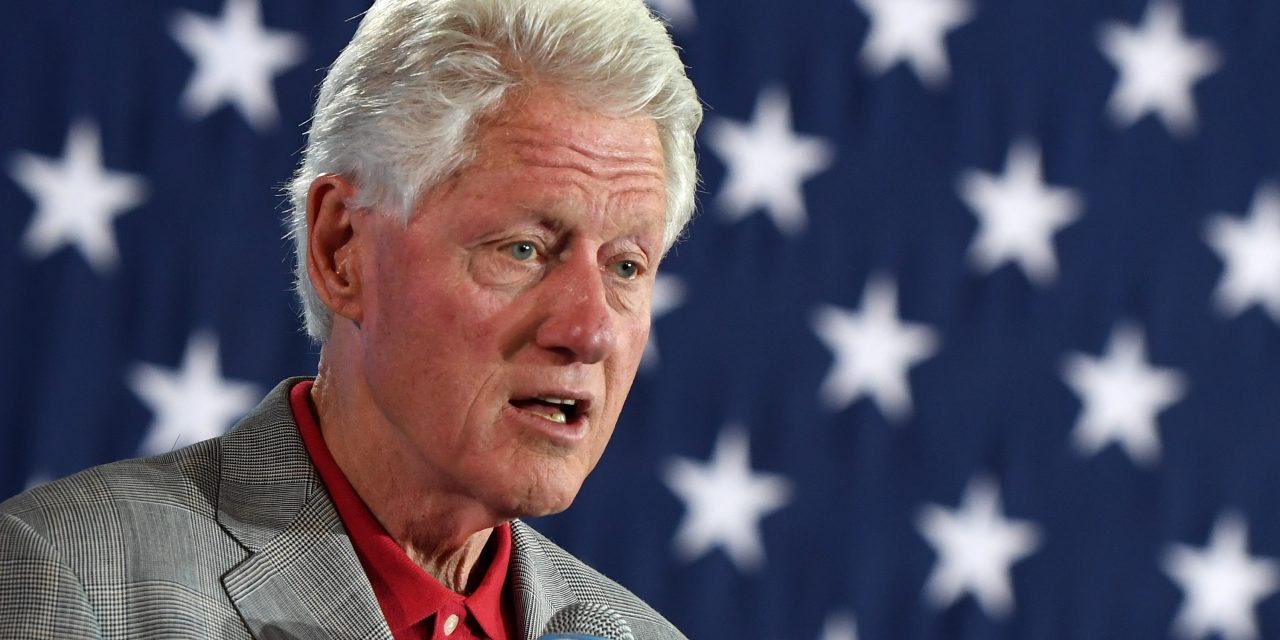Image Credits: Ethan Miller- Getty Images.
I am in pretty close to total agreement with what Steve M. of No More Mister Nice Blog says below, which is a disturbing self-realization. However, I don’t think he’s considered every angle:
I realize that many Trump critics don’t want to bother with impeachment because it seems futile (the Senate will never convict), or because they think impeachment will alienate swing voters going into 2020, or because they think the 2020 election is just around the corner (even though a year and a half is a long time).
But I also suspect that many Americans have simply come to accept the notion that white guys in expensive suits routinely get away with white-collar crime, and it’s just the natural order of things not to bring them to justice, or even to make an attempt at prosecution. The bankers got away with crashing the economy a decade ago. The executives who gave us the opioid crisis are all still at large. The George W. Bush administration got away with torture and Ronald Reagan escaped punishment for Iran-contra. That’s just how it goes.
That would explain why rank-and-file Democrats aren’t united in a push for impeachment — as noted above, only 62% favor it and only 53% strongly favor it, while 87% of Republicans oppose it, 78% strongly. What you don’t see among Democrats is the opinion expressed by many lefty pundits that impeachment must happen, otherwise it means we’ve given up on the rule of law. I think many Democrats believe that happened quite a while ago.
What’s missing here is a serious treatment of what happened the last time Congress attempted to remove a president for obstructing justice. At that time, the Republicans believed President Clinton couldn’t be allowed to just get away with lying under oath, using his secretary to conceal gifts he’d exchanged with his mistress, etc. To permit that, they felt, would do real damage to the rule of law. The Democrats didn’t really disagree. They did not propose that nothing happen to the president, instead advancing an official censure from Congress as more commensurate with the offense. After all, the president’s crimes were really committed primarily to avoid embarrassment and marital strife rather than to abuse his power. The left generally felt that it was Special Prosecutor Kenneth Starr who had abused his power and gone on a witch-hunt, which is another reason it wasn’t inclined to mete out the severest punishment.
In the end, the Republican-controlled House of Representatives exercised their power to impeach Clinton, leaving an indelible black mark on his record, but the Senate never came close to convicting and removing him.
People still argue about which party benefited from impeachment in the years ahead. The Republicans did poorly in the 1998 midterm elections which took place in an environment dominated by the impeachment process. As a result, Newt Gingrich lost his job as Speaker of the House. On the other hand, Al Gore took on some of the collateral damage from the scandal, and arguably overcompensated by picking Clinton-critic Joe Lieberman as his running mate. His narrow, controversial loss in the 2000 election is hard to imagine without the predicate of the Lewinsky scandal. It seems like the Democrats benefited from impeachment in the short-term, but not in the long-term.
As for vindicating the rule of law, that’s also hard to judge. In theory, slapping Clinton with an impeachment charge should have had some deterrent effect on future presidents, but then the fact that we was acquitted worked in the opposite direction. At the same time, incidents during the Bush administration, like the U.S.attorneys scandal, did more to undermine the rule of law than letting a perjurious president remain in office. If the American public is cynical about the justice system, a lot of the blame lies with the Bush administration’s decision to politicize the Justice Department. Had Al Gore become president, it’s possible that standing up for the rule of law in the Lewinsky matter wouldn’t have been swamped by subsequent events.
Either way, the public strongly opposed removing Clinton from power, and it’s widely conceded today even in conservative circles that the Republicans overreached. Yet, the only salutary aspect of the whole saga was that Congress actually did stand up for the rule of law. The problem is that the Republicans didn’t respect it themselves when they regained the White House.
So, there are a lot of different aspects we can look at from the last time Congress had to consider what to do about a president who had obstructed justice. Politically, the Republicans took a short-term hit that seemed to benefit them in the next presidential election. Clinton was not successfully removed, but he was chastened and punished. Yet, it’s hard to argue that it resulted in better behavior from future presidents. You can’t successfully uphold the rule of law by being a hardass when it suits you and then letting things pass when it does not.
For the public, I think the episode is remembered with revulsion. It was thoroughly unpleasant at the time, no one got what they wanted, and nothing tangible was gained. Another problematic legacy is a precedent was established that perjury and obstruction of justice are not necessarily high crimes. That’s not a great precedent, as we can see now as we consider what to do about the Mueller Report. I think Democrats look at the l’affaire Lewinsky and don’t see much they’d like to emulate.
So, while I agree that some of the resistance to impeaching Trump among Democrats comes from a kind of fatalism about ever holding rich, powerful men accountable for their actions, I also think it’s a response to what happened the last time it was attempted. They became cynical so that today, when “lefty pundits [say] that impeachment must happen [or] we’ve given up on the rule of law,” they simply don’t believe that the rule of law can be effectively upheld by acquitting a president for impeachable crimes.
I don’t subscribe to this few myself, for one very simple reason. Donald Trump is suspected of being compromised by a hostile foreign power. He is destroying valuable norms on a daily basis. His offenses constitute an unambiguous abuse of power. It’s therefore a mistake to equate what happened in 1998 and 1999 with Bill Clinton to what must happen now with Donald Trump.
Back then, punishing Clinton was optional, and a formal reprimand would have been sufficient. Today, we have a serious problem that will not go away on its own. We can’t ignore it, and we can’t go down without a fight.







